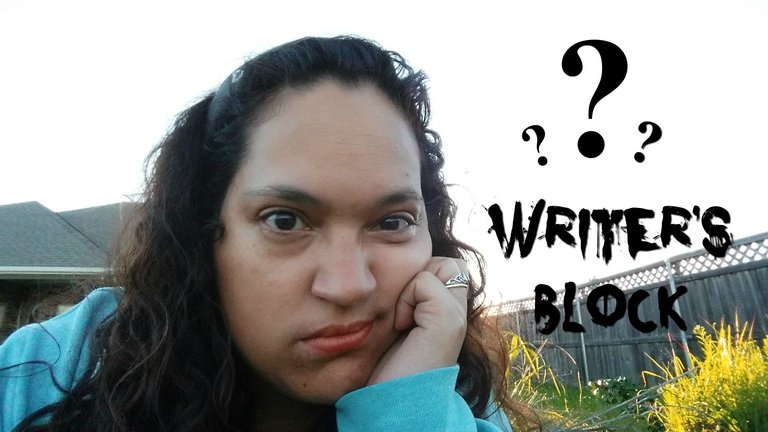
My writer's block face. Image by Jennifer Capestany
Well, today was a pretty rotten day for attempting to get any kind of writing done. A nasty bout of writer's block set in like a bad cold. It was bleak. It was depressing. It was a bad place to be. Here's the thing: Writing is part of how I make my living. I have my practice as a consulting herbalist, which you can learn more about if you want to by visiting my website here, but I also write articles on health and gardening as a freelancer. Sometimes I get a name credit. Sometimes it's ghostwritten, my least favorite option, but at least I get paid. A lot has to get done within a limited amount of time, so when my ability to write the next line dries up, it SUCKS!
Sadly this happens to me pretty routinely. So just for fun, and to waste time and cause myself even more distraction, I looked up what factors may be behind writer's block. It turns out that while this is a widespread phenomenon that nearly every writer on the planet has experienced to varying degrees of severity, writer's block is not actually considered a mental illness (Whew!). Therefore, it's not profitable for science to actually study in depth, or, rather, for pharmaceutical companies and the like to pay for said studies (Oh). Having said that, many have still speculated on what causes writer's block. Their ideas include:
- ADHD
- stress
- brain activity issues
- emotional upset
- deadlines
- having to write about topics that you aren't that interested in
- health issues that affect cognition, memory, and creativity
- physical exhaustion
- good old analysis paralysis
All of these seem reasonable enough as contributing factors. To that list I'd also suggest:
- family member has run out of socks or shirts and needs you to magically produce them
- house looks like an abandoned barn and needs immediate attention
- homeschooled daughter has declared (again) that math hates her face and there's no point in her trying to learn it
Deadlines and uninspired topics are probably the heaviest hitters for me, along with life interruptions. What to do about it though? Staring at the screen didn't work. At all. Played Hotel Dash for a while. Bad idea. Running over how busy my schedule was, how I was out of time, and how this sh$t NEEDED to get done was tremendously unhelpful. What about a walk? Many health practitioners suggest physical exercise in the sun as a great way to break up negative thinking and jumpstart the brain. All right. Off I went into my messy backyard and surrounding fields to hunt down some cool wild plants.
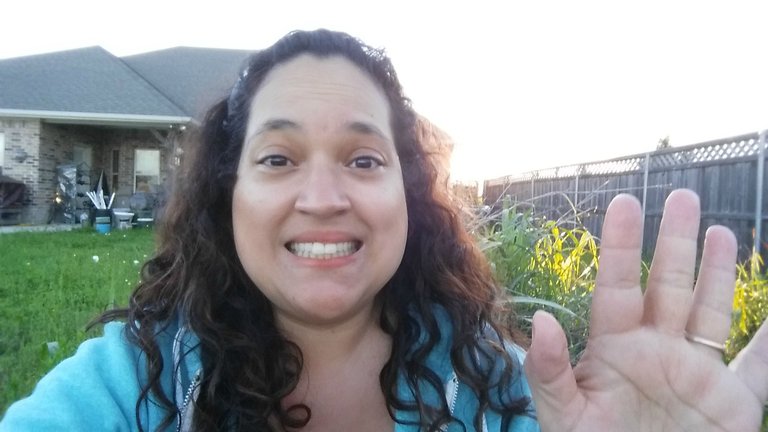
Me in my messy backyard, hopeful that a walk will solve the problem!
Texas is gorgeous at this time of year. A little time outside, away from my desk, would be just the thing! What did I find, you ask, and did it work to knock my writer's block out of my head? Well, there was this sizeable wild lettuce (Lactuca serriola), edible when the leaves are very young (quite bitter though), and medicinal as a mild sedative and anxiety aid. Note: This herb can be dangerously potent as an herbal remedy, so only use it under the supervision of a practitioner trained in herbal medicine.... And the anarchist in me wants to remind you that you own yourself.
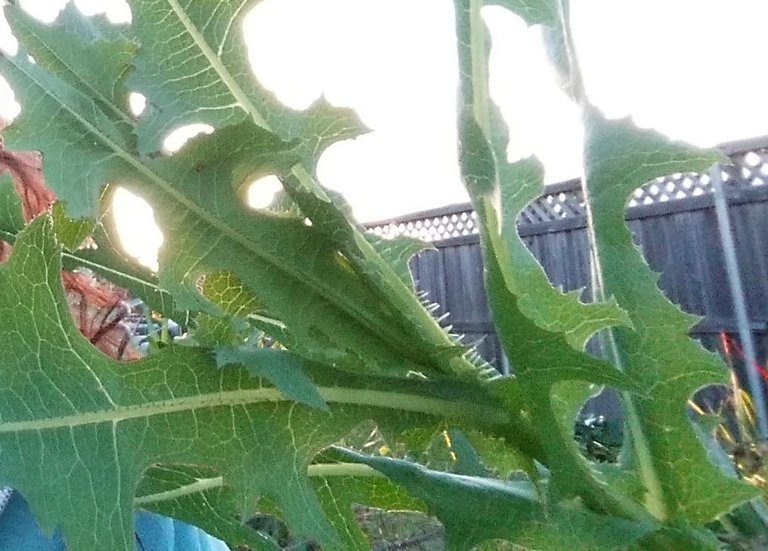
Wild lettuce. Image by Jennifer Capestany.
And fields full of Texas buttercups, AKA evening primrose (Oenothera speciosa). Used as a whole plant (not just the well-known oil), evening primrose has benefits as an anti-inflammatory, vulnerary aid, and a soothing nervine.
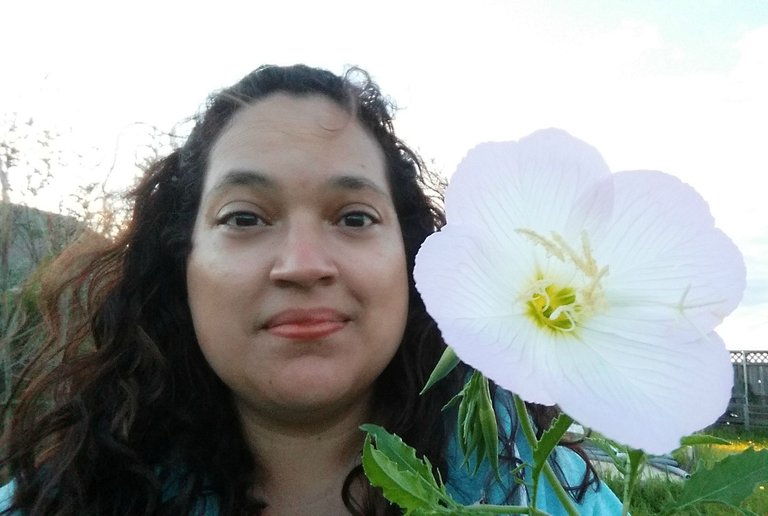
Evening primrose in yo face! Image by Jennifer Capestany.
And loads of this cutie, which I believe to be black medic (Medicago lupulina), edible as a cooked green. Like all clovers, black medic is a nitrogen fixer and useful as a cover crop.
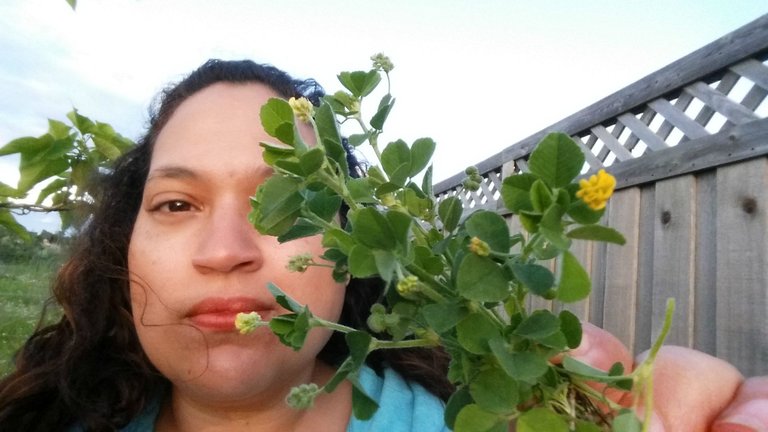
Black medic. It's so cute! Image by Jennifer Capestany.
After that energizing plant walk, I went back to my laptop and churned out... this post. Oh, well. Tomorrow's another day.
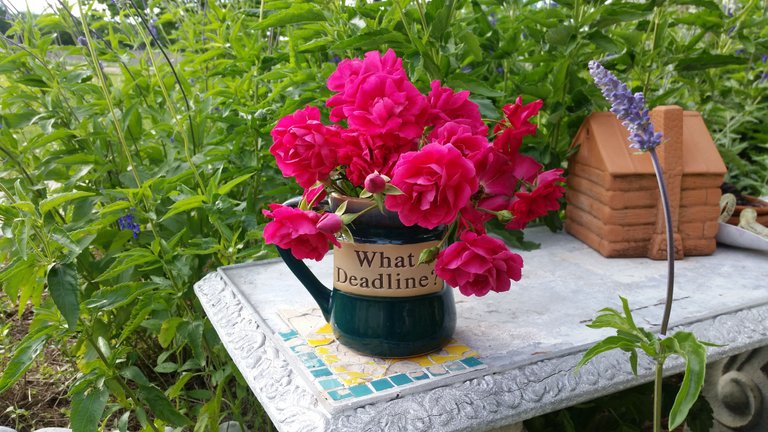
Image by Jennifer Capestany.
Health Disclaimer: You own yourself. Always do your research when trying out new foods, especially if you have a health condition, and/or are on prescription medications. Wild edibles are nutrient dense. Most of us are not used to that. Go slowly, not only to test for reaction, but also to give your body a chance to accustom to the richness of wild edibles. No information on this website should be considered medical advice, nor should the information here be considered a complete listing of all possible plant components or dangers. Neither Prairie Hawk Botanica nor Jennifer Capestany will be responsible for injury. Anything that you learn from Prairie Hawk Botanica, its blog, or Jennifer Capestany must be considered informational only.

Author: Jennifer Capestany
Jennifer is a clinical herbalist and health coach, specializing in autoimmune diseases like rheumatoid arthritis. Her interest in plant medicine led Jennifer to spend years studying herbology, physiology, and nutrition. She works one-on-one with her clients via her herbalist and health coaching business, Prairie Hawk Botanica. Jennifer lives on a homestead in rural Texas with her husband, 2 children, and various animals. In her spare time she loves to be in her large herb and vegetable garden. Sharing herb knowledge and her love of natural healing with others is her calling. Steem and Bitcoin accepted.
Wow, I was going to comment that your backyard looked like my in-laws place in south TX, and you're in Texas! Love the wild edibles, I do a lot of that myself!
Yup! North Texas on prairie land. I can't believe that more people don't include wild edibles in their diet. Who wouldn't love plants that you don't have to grow or pay for?!
Also, check out @haphazard-hstead.